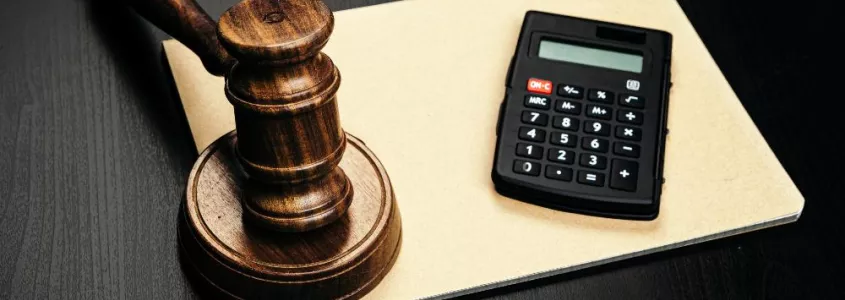
Table of contents
You may have received a court judgement against you. You are ordered to pay the debt you owed to the plaintiff in the past. However, you do not have enough money to pay it. So you may be wondering whether you can pay a court judgement in instalments. Here we will try to answer that question.
Preliminary issues: the order for payment procedure
An order for payment is a judicial procedure that accelerates the collection of unpaid debts by a natural person or a company. It results in a court judgement that will oblige the debtor to make payment by the method of payment that the judge deems most convenient.
But, at this point, what are the deadlines for enforcement of the order for payment procedure? Specifically, once the judgment is issued, the debtor has 20 working days to make a decision. There are three options in this respect:
- Pay the amount of the debt. This is the most advisable option, as paying the debt puts an end to the court proceedings. However, how long do I have to pay a court fine? As we said before, 20 working days from the date you receive the court judgement of the payment order. In the event that it cannot be delivered to you because you are not at home or because the court has the wrong address, the time limit will still start to run.
- Not paying the debt. This is the least advisable alternative, but the only viable one if I am ordered to pay and have no money. In this case, once these 20 working days have elapsed, the creditor may request forced execution, which will result in the seizure of the debtor's assets. However, the judge will not do this ex officio, but will have to request it himself.
- Appeal against the judgement. That is to say, to oppose the creditor's request, for which he also has 20 working days. It should be remembered that this may increase the amount of the legal costs, as it will give rise to a new procedure related to the previous one.
So can a court judgement be paid in instalments?
Unfortunately, the answer is no. The court judgement will always dictate the means of payment. The court judgement will always dictate the means of payment of the total amount of the debt incurred. Also, do not forget that, if applicable, you will have to include the relevant legal costs of the process.
The only possible way to pay a debt in instalments is to reach an agreement with the creditor. However, if there is already a court judgement involved, it is unlikely that you will be willing to negotiate.
How to pay a debt in court?
Now it is time to talk about how to pay a debt in court. In the court judgement, the appropriate means of payment will appear. The most common method of payment is by consignment to the court. The procedure is simple. The debtor makes a bank transfer to the account provided by the court. Once the money has been received, the court itself deposits it in the creditor's current account.
As a result of this deposit, the court will provide the debtor with documentation proving that the debt has been paid. The court will then proceed to file the case.
When does a court-ordered debt become time-barred?
In itself, once the court judgement is produced, the debt is not time-barred. What does prescribe is the creditor's right to request enforcement of the judgment. The period is 5 years from the time when the aforementioned 20 working days have elapsed.
This is the same time limit that, since the 2015 reform of the Civil Code, all debts have. In other words, if five years have passed since the date of non-payment, the creditor will not be able to request it judicially.
Is it possible to apply for deferment of payment of court costs?
No, it is not possible to request deferment of payment of court costs. This follows from a judgment of 24 April 2017 of the Administrative Chamber of the Supreme Court. It states that neither the law on contentious-administrative jurisdiction nor the law on civil procedure provides for postponement of the payment of court costs. Nor does it understand that judges have the power to establish their division in court judgments issued during order for payment proceedings.
What assets can be seized when collecting a debt?
Not all of the debtor's assets can be seized for the purpose of settling the debt. This is the case, in particular, of the salary, pension or any other equivalent remuneration if it does not exceed the minimum wage. This means that the court can only attach the amount it deems appropriate above this amount.
Some conclusions on the payment in instalments of court judgements
In short, if I am ordered to pay and I have no money, you will have to assume that there is a possibility that your assets will be seized. Do not try to hide them, as you may be guilty of an offence of extortion with extremely serious consequences.
In any case, we hope that we have helped you to understand the time limits you need to take into account in the order for payment procedure, when a debt is time-barred by a court judgement and how long I have to pay a court fine. This information will be very useful in this type of situation. Do not hesitate to contact us if you need more in-depth personalised advice.

"Anywhere in Spain"
With our online appointment system you will have immediate advice without the need for face-to-face visits or travel.
One of our lawyers specialized in your area of interest will contact you to formalize an appointment and make your consultation by video call.


Add new comment